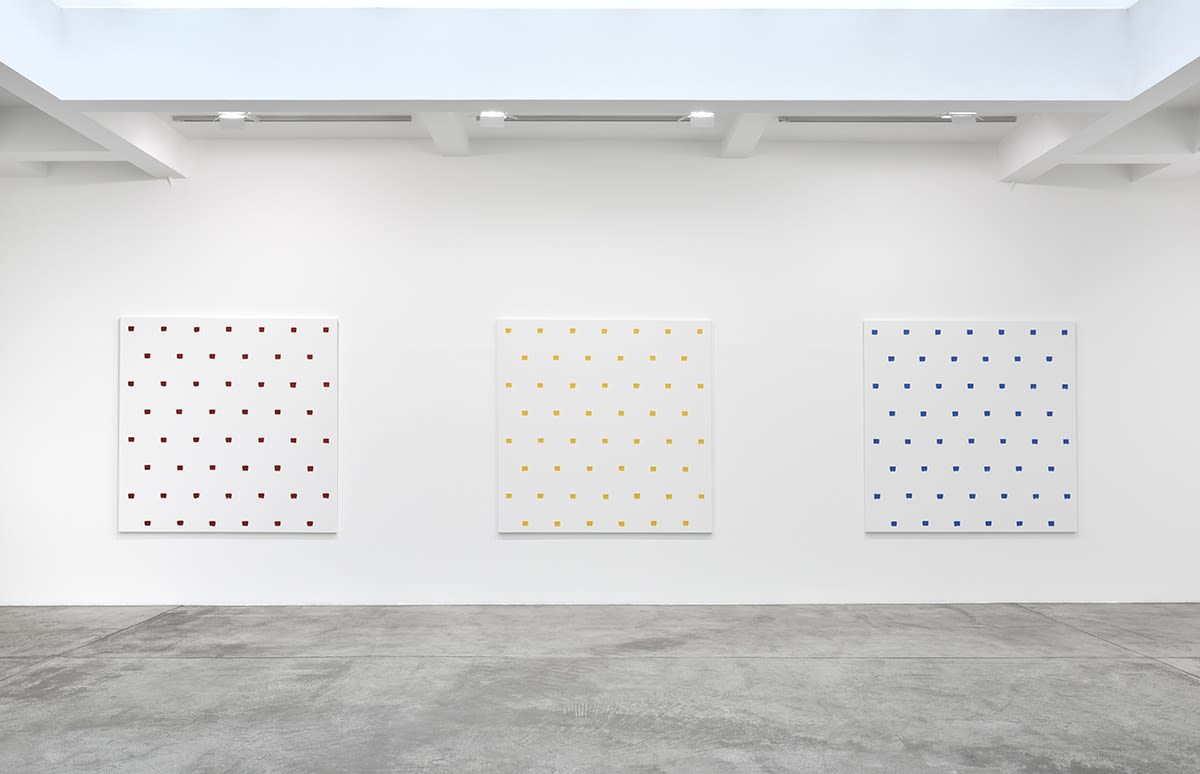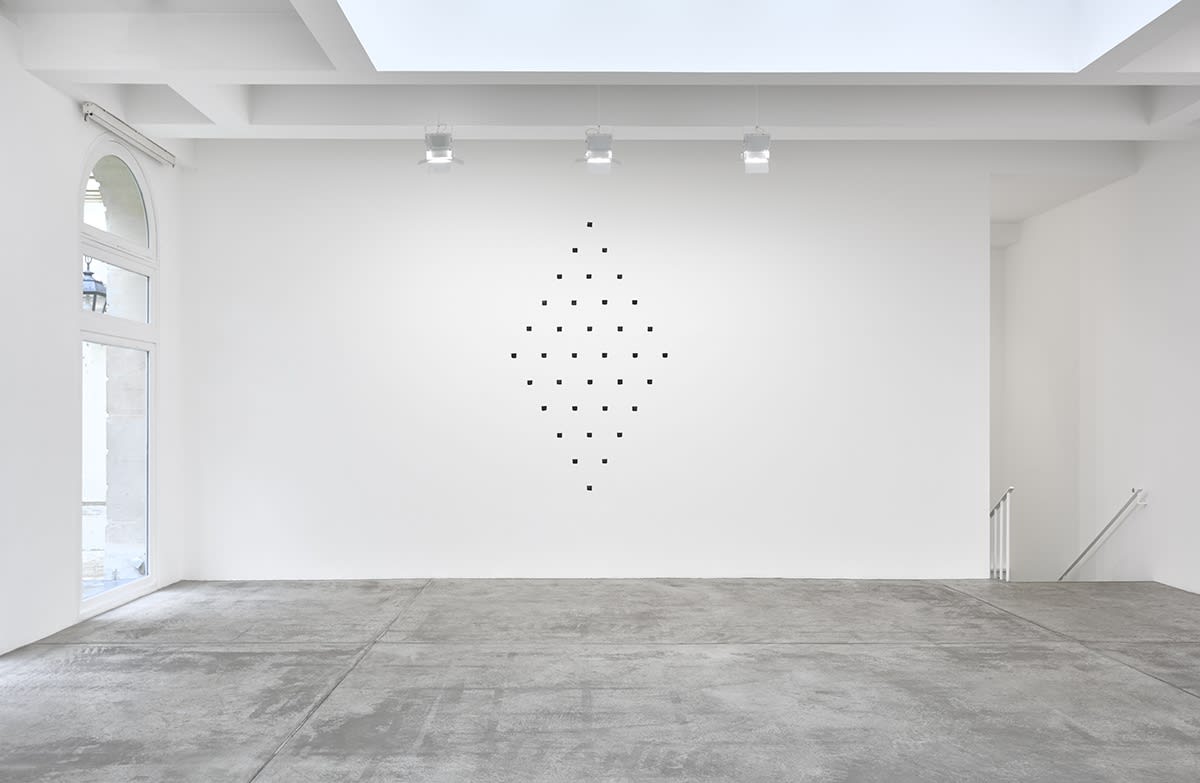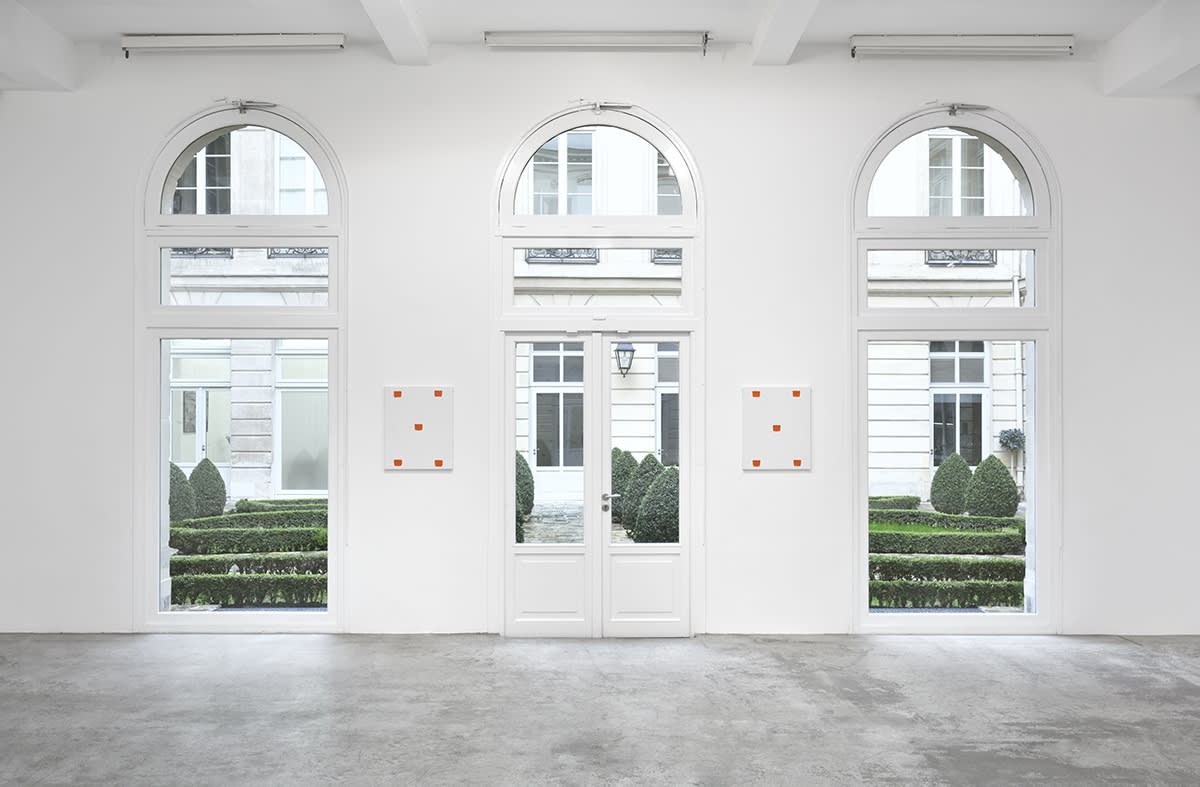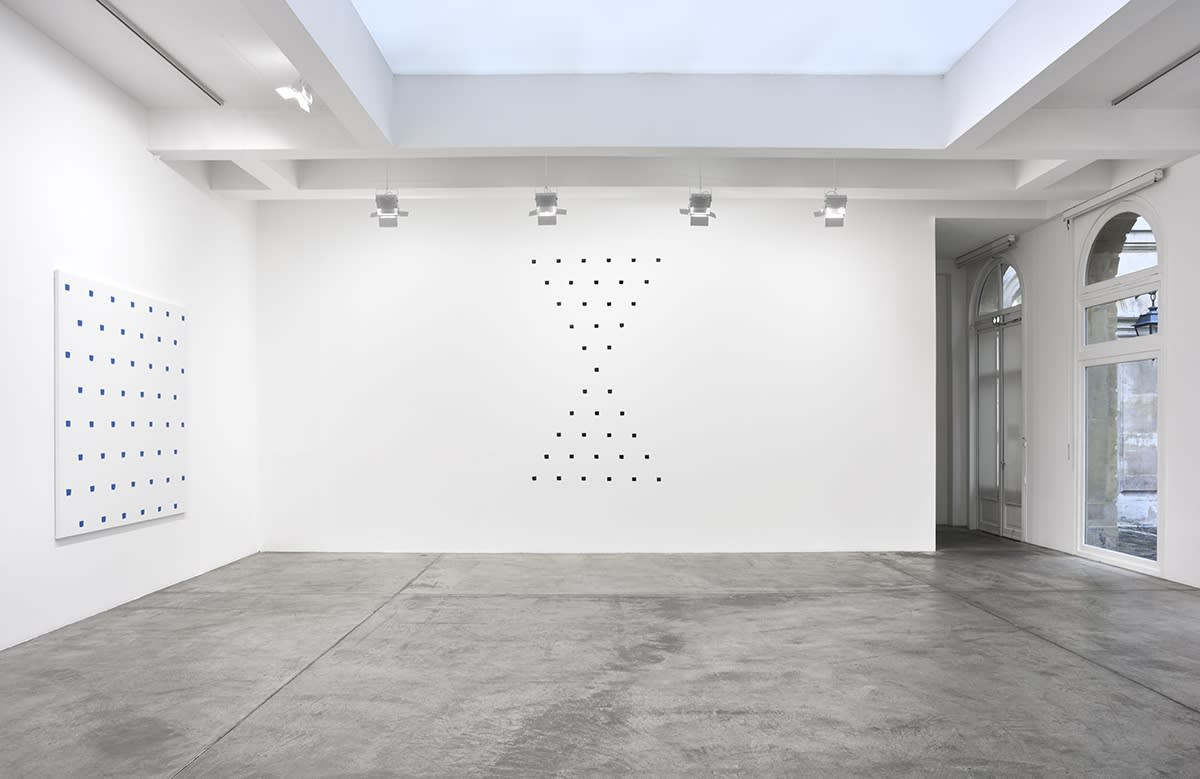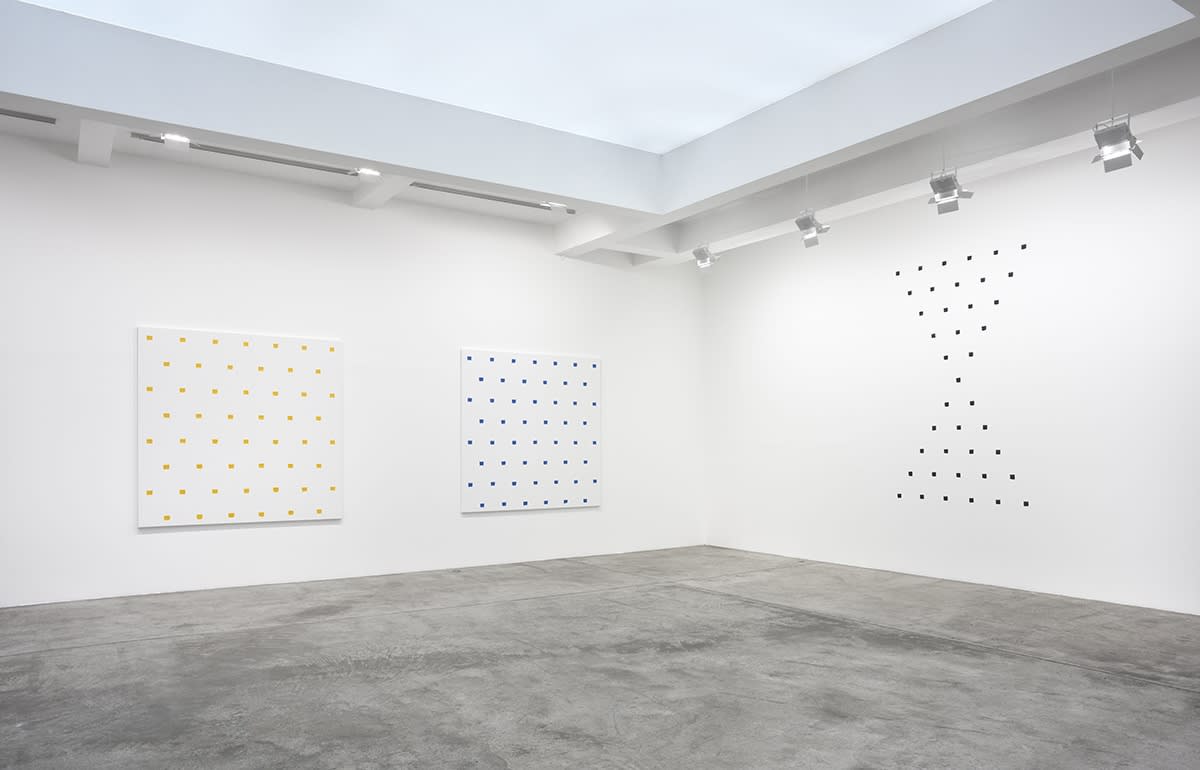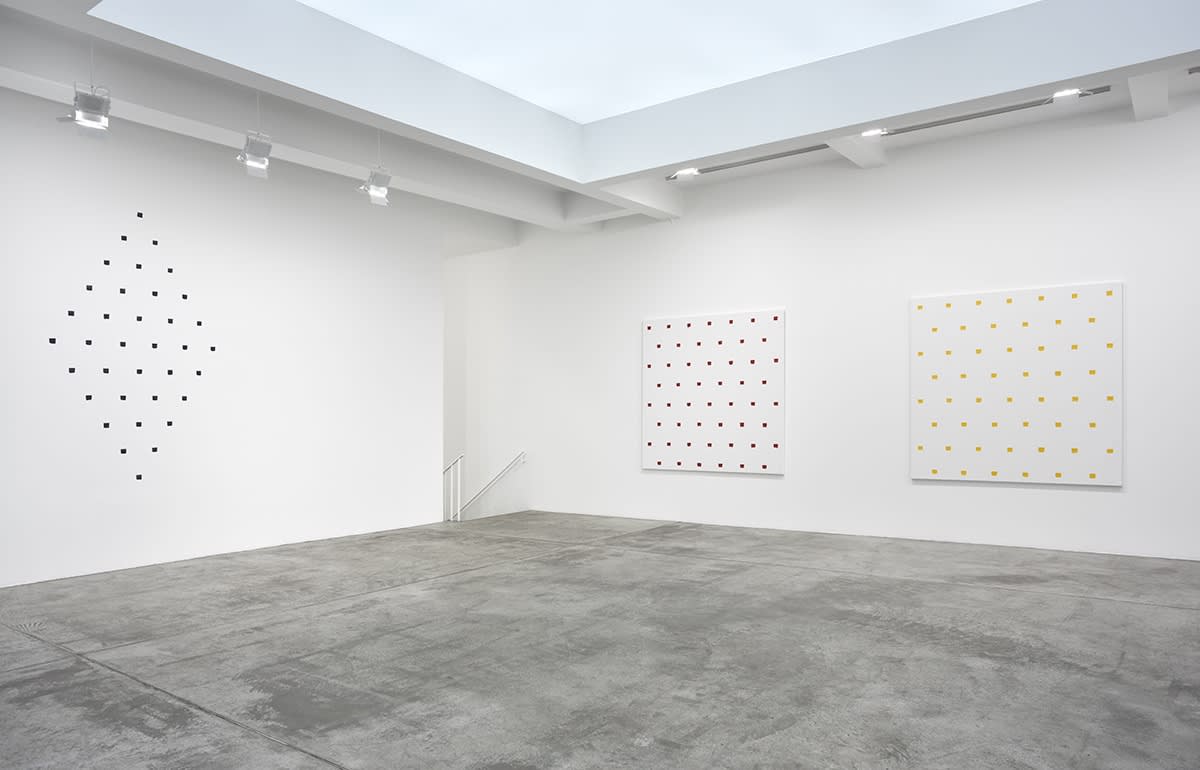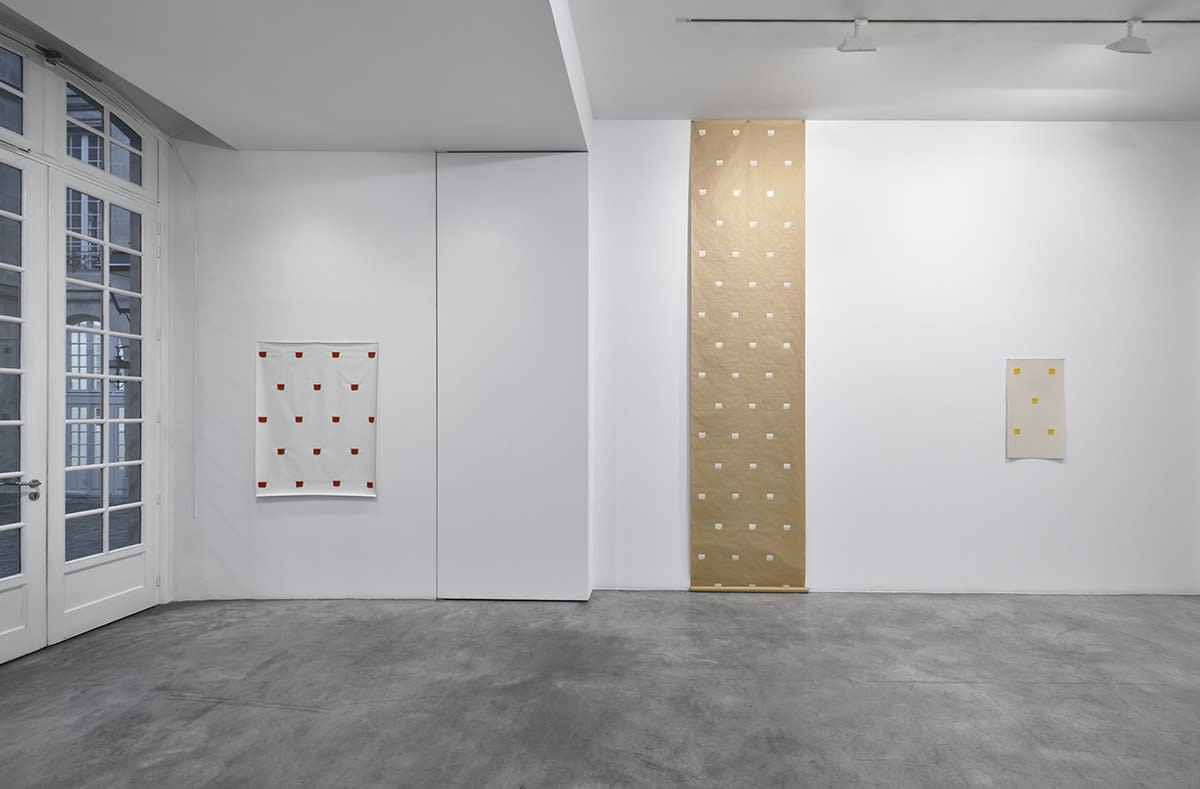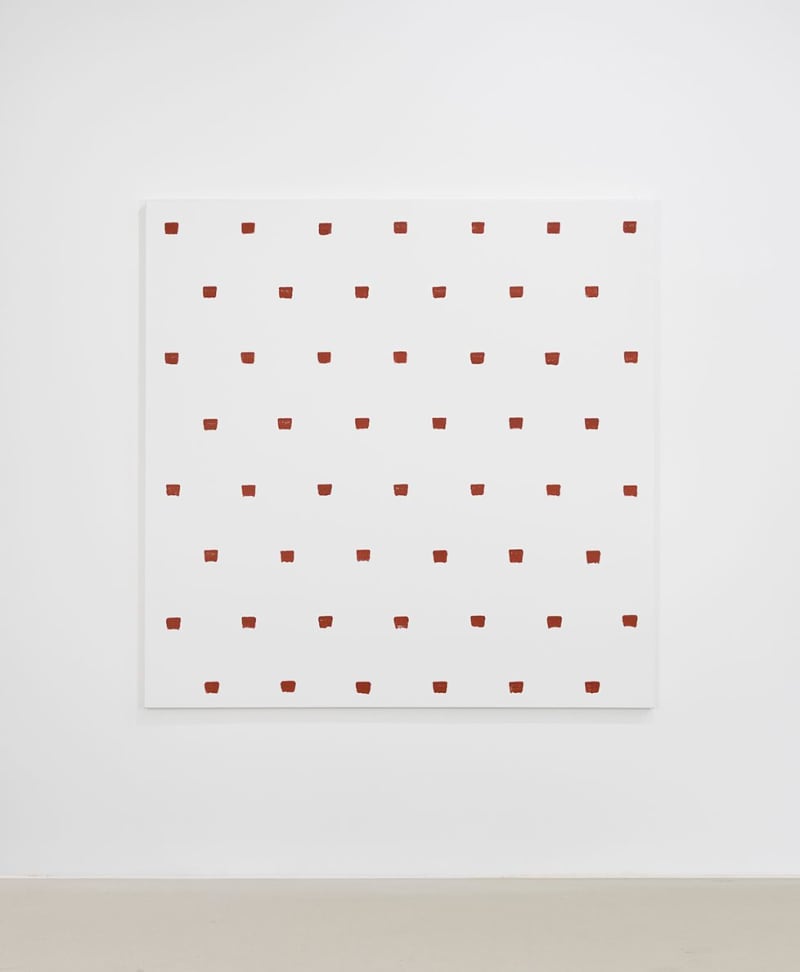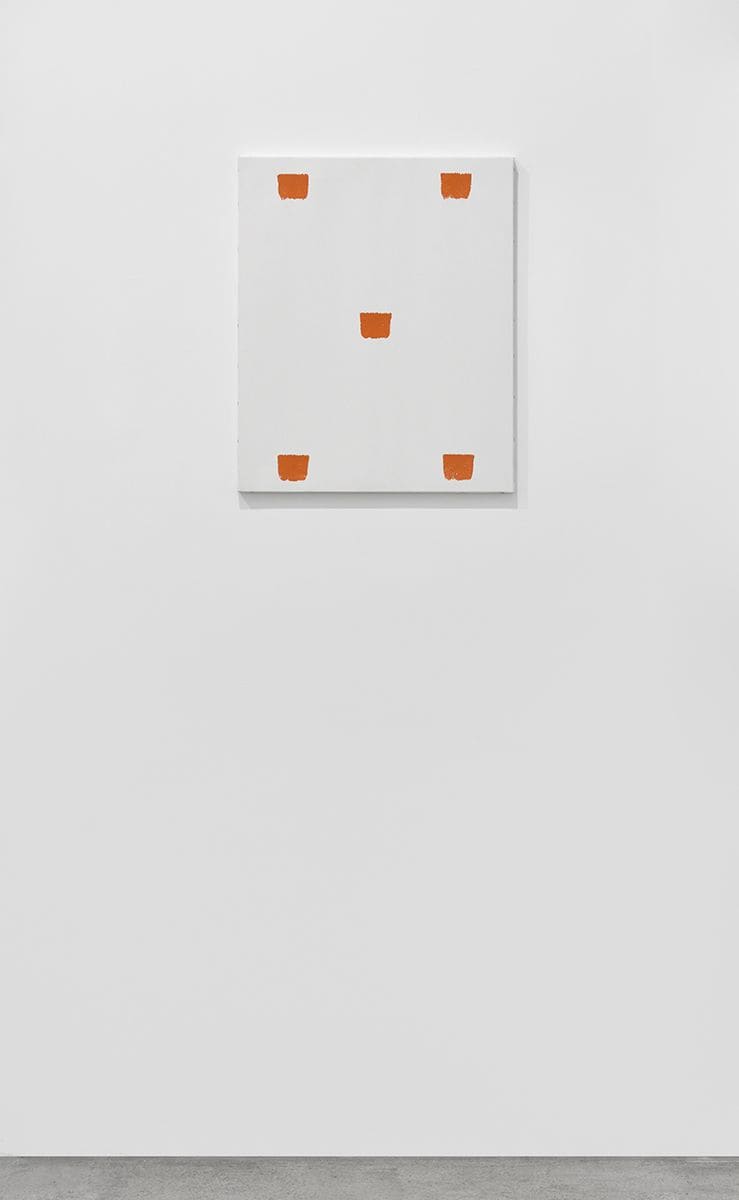Overview
Marian Goodman Gallery is pleased to present for the first time at 79, rue du Temple an exhibition of Niele Toroni. En passant will present new paintings on canvas, oilcloth and paper as well as two site-specific interventions.
Niele Toroni belongs to the first generation of European minimalist painters active since the 1960s. His practice aims to “affirm the existence of painting as such.” His working method, sometimes considered radical, is as famous as it is unvarying: since 1967, he has been applying, on every type of surface, imprints of a no. 50 paintbrush at regular intervals of 30 cm. While there is no privileged color, the imprints in any given work are monochrome, and thus no “travail/peinture” (work/painting) is “ever alike, just as no imprint of a no. 50 paintbrush is ever alike.”
Niele Toroni: En passant
March 5 – April 16, 2016
Opening reception: Saturday March 5, 6-8 pm
“It’s not me who leaves imprints, it’s a no. 50 paintbrush."
Niele Toroni
Marian Goodman Gallery is pleased to present for the first time at 79, rue du Temple an exhibition of Niele Toroni. En passant will present new paintings on canvas, oilcloth and paper as well as two site-specific interventions.
Niele Toroni belongs to the first generation of European minimalist painters active since the 1960s. His practice aims to “affirm the existence of painting as such.” His working method, sometimes considered radical, is as famous as it is unvarying: since 1967, he has been applying, on every type of surface, imprints of a no. 50 paintbrush at regular intervals of 30 cm. While there is no privileged color, the imprints in any given work are monochrome, and thus no “travail/peinture” (work/painting) is “ever alike, just as no imprint of a no. 50 paintbrush is ever alike.”
Toroni, who does not think of himself as an artist but as a painter, declares that his work comes into view, and must be absorbed “with a single glance.” He thus rejects all forms of subjectivity; the imprints of no. 50 paintbrush convey no message or mood, they tell no story. “I do not visualize ideas: I apply a paintbrush, the imprints of the paintbrush become visible, and this (the work/painting) may be generative of new ideas.” 1
The critical dimension of his work explores the meaning of pictorial activity, but, in contrast to the minimalist or conceptual approach, the gesture is essential. Therefore, although he does not sign his name on the material he uses, in over forty years Niele Toroni has never delegated the task of creating imprints to an assistant.
“What is visible and produced by the application of the paintbrush is painting, not misappropriation or obliteration of something that is already there,” writes René Denizot, art critic and friend of Toroni. “The imprint made by the paintbrush is actually being produced and only exists through that gesture, in a relationship of necessity and in a structural coherence of all the elements involved in production (paper, canvas, paint, brush, surface, space, location, etc…)." 2
Toroni’s imprints permanently cover the walls of numerous European institutions, including Hamburger Bahnhof Museum für Gegenwart in Berlin, Castello di Rivoli in Turin, Museum Ludwig in Cologne as well as Musée des Beaux-arts in Lyon.
Born in 1937 in Muralto in the Swiss canton of Ticino, Niele Toroni studied at the école normale to become a teacher, before deciding, in 1959, at the age of 22, to come to Paris to “do painting”. He has lived there ever since.
Among the institutions which have supported his travail/peinture, the Musée d’Art moderne de la Ville de Paris holds a special place: it is there that, in 1967, at the Salon de la Jeune Peinture, Niele Toroni exhibited his imprints with a no. 50 paintbrush for the first time. He has subsequently been invited to exhibit once again on a number of occasions, notably in 2001 (Histoires de Peinture) and most recently in 2015. He has also created two permanent site-specific interventions: Le Cabinet de peinture in 1989, and a painting over the museum entrance in 2001.
His work has been the subject of numerous solo exhibitions, notably in the following museums: Musem Kurhaus Kleve in Kleve, Germany (2002); The Museum of Modern Art in Gunma, Japan; CAPC, Musée d’Art Contemporain de Bordeaux (1997); Stedelijk Museum in Amsterdam (1994); the Musée National d’Art moderne (MNAM) in Paris (1991). Recently, Toroni exhibited at the Villa Pisani Bonetti in Vicenza, Italy (2012) and at the Swiss Institute in New York (2015).
The recipient of many awards, including the Meret Oppenheim Prize (2012), Toroni has also participated in major international exhibitions, including Documenta 9 (1992) and Documenta 7 (1982); the Venice Biennale (1972; 1976); and the Sao Paulo Biennale (1991). In February 2016 the city of Siegen in Germany awarded him with the Rubenspreis and in April his work will be presented at the Punta della Dogana as part of the new exhibition of the Fondation Pinault collections.
1 The Niele Toroni quotes are excerpted from a 1982 interview published in the exhibition catalogue, Niele Toroni, CAPC, Bordeaux, 1997.
2 René Denizot, Une empreinte n’est jamais seule, Yvon Lambert Editeur, Paris, 1975.
press contact:
Raphaële Coutant
raphaele@mariangoodman.com
01 48 04 70 52
